 Taigan is originated from Kyrgyzstan but Yorkillon is originated from United States. Taigan may grow 59 cm / 24 inches higher than Yorkillon. Taigan may weigh 30 kg / 67 pounds more than Yorkillon. Both Taigan and Yorkillon has almost same life span. Both Taigan and Yorkillon has almost same litter size. Taigan requires Low Maintenance. But Yorkillon requires Moderate Maintenance
Taigan is originated from Kyrgyzstan but Yorkillon is originated from United States. Taigan may grow 59 cm / 24 inches higher than Yorkillon. Taigan may weigh 30 kg / 67 pounds more than Yorkillon. Both Taigan and Yorkillon has almost same life span. Both Taigan and Yorkillon has almost same litter size. Taigan requires Low Maintenance. But Yorkillon requires Moderate Maintenance
Basic Information
undefined
Kyrgyzstan
United States
Life Span:
11 - 13 Years
12 - 14 Years
Other Names:
Kyrgyzdyn Taighany
Papa-ShirePapa-Shire • Papiyork • Yorkie Pap Papillon-Yorkshire Terrier Mix, Papillon-Yorkie Mix,
Colors Available:
grey or yellow - bi-colored, Cream, black and white, brown
White, brown and white, light brown/golden, dark brown/chocolate, black and brown, black
Coat:
Medium length, wavy or curly
Straight, medium, fine fine, soft coat
Temperament:
Affectionate, Alert, Cheerful, Courageous, Curious, Docile, Energetic, Friendly, Gentle, Independent, Intelligent, Lively, Loving, Loyal, Outgoing, Playful, Protective, Quiet, Responsive, Social, Stubborn, Territorial
Alert, Energetic, Friendly, Loving, Loyal, Playful
Grooming:
Low Maintenance
Moderate Maintenance
New Owners Friendly:
Yes
Yes
History
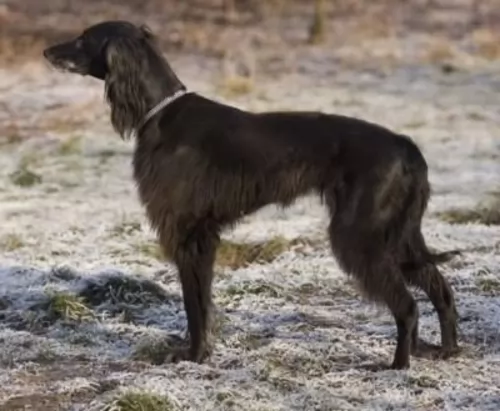 Known also as the Kyrgyzdyn Taighany, the Taigan is a sighthound dog from Kyrgyzstan. Today the dog is recognized by a number of kennel clubs,and more recently by the FCI.
Known also as the Kyrgyzdyn Taighany, the Taigan is a sighthound dog from Kyrgyzstan. Today the dog is recognized by a number of kennel clubs,and more recently by the FCI.
It was after 1991, when Kyrgyzstan became independent, that the role of the dog changed and t became a working dog again.
It was about in 1995 that a new breed standard was adopted, and since 2005 a national kennel club has existed in Kyrgyzstan.
The Yorkillon is a bighearted cross between the Yorkshire Terrier and the Papillon. They are small dogs with huge attitudes and big ears. They are known to be sassy and get into trouble. They are playful, affectionate and intelligent. They were initially developed in the US sometime about 20-30 years ago.
Not recognized by the American Kennel Club as they are considered designer dogs or mixed breeds
Description
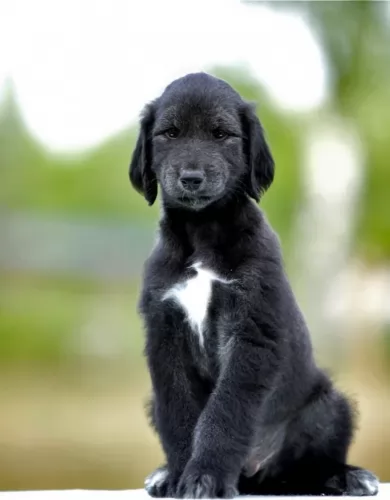 The Taigan is a large dog, looking much like a Grehound. He stands at between 55 and 82cm in height and weighs about 25 - 34kg.
The Taigan is a large dog, looking much like a Grehound. He stands at between 55 and 82cm in height and weighs about 25 - 34kg.
He has that typical slender body and slender head of the greyhound. The coat of the dog is medium length and somewhat curly and can be many colours, sometimes even bi-colored – cream, black and white, brown, grey or yellow.
During the Winter the coat can become long and thick. The ears are floppy and covered with wavy fur. The tail is long and a distinguishing mark of the dog is the way the end of the tail coils up into a ring.
These dogs can’t be kept in small city properties – they are used to wide open spaces.
Temperament:
An intelligent breed, the Taigan will readily learn some basic commands to make him well mannered and obedient. He is strong willed and independent, so it will be beneficial to have him trained.
He also makes a good watchdog. He is an even-tempered dog and he enjoys human companionship although he is somewhat reserved with strangers. Even so, he will still need a strong, firm owner as he is strong-willed and independent and likes to go his own way.
He is able to get along well with children in the home and other pets. Being a fairly large dog, and one that likes to run, he is better suited to large properties in the countryside as opposed to living in the city.
The Yorkillon is a small dog that can look like a Yorkie or a Papillon but most due have large ears like the Papillon. Both parent breeds have long hair and short legs. There is still a lot of first generation breeding, but most are now products of multigenerational breeding. This means that every puppy can look different and no two are likely to look the same.
Characteristics
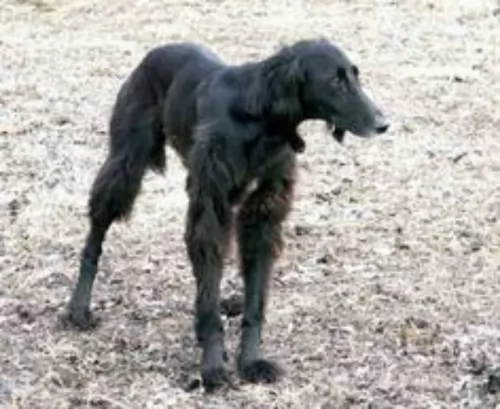 Taigans are energetic dogs and they want a lot of activity. They’re good watchdogs too and are gentle with children.
Taigans are energetic dogs and they want a lot of activity. They’re good watchdogs too and are gentle with children.
They’re intelligent and independent and also strong willed. They’re fearless, calm, balanced, loving and loyal and capable of being an excellent pet and companion.
1.Children friendliness yes but be careful the children do not hurt the small dogs. This is particularly true regarding the risk of tracheal collapse.
2.Special talents – loves to do tricks
3.Adaptability – can live anywhere in an apartment as well as a home, but he would prefer to have a fenced yard to run in.
4.Learning ability – extremely smart and very obedient
Health Problems
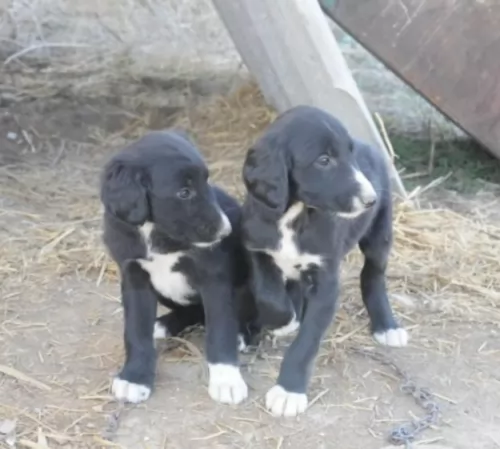 Any dog, no matter how healthy they may appear to be, can encounter any one of the many common dog illnesses there are. It is highly unlikely that your Taigan will experience these health issues but it’s good to be aware of some of them -
Any dog, no matter how healthy they may appear to be, can encounter any one of the many common dog illnesses there are. It is highly unlikely that your Taigan will experience these health issues but it’s good to be aware of some of them -
Bone Cancer:
Also known as osteosarcoma, bone cancer is more commonly seen in large dogs of any breed. It’s a cancer which spreads rapidly through the body and it is terribly sad that the prognosis for your dog is poor.
You might notice swelling, joint pain and lameness and your dog will appear to always be tired. Sometimes you might see a growth. Your vet might do x-rays and if you catch it early, you can give your pet a longer lease on life.
There are not a lot of hereditary health issues but there are some issues they can be prone to:
• Patellar Luxation – slipped knee caps can lead to lameness.
• Epilepsy – can be treated with medication.
• Diabetes – can be treated with medication
• Legg Calve Perthes Disease – blood disorder affecting hind leg bones.
• Heart defects
• Tracheal collapse
• Hip dysplasia – can cause lameness.
Caring The Pet
The Taigan is a large slender dog and you want to keep him that way.
Diet:
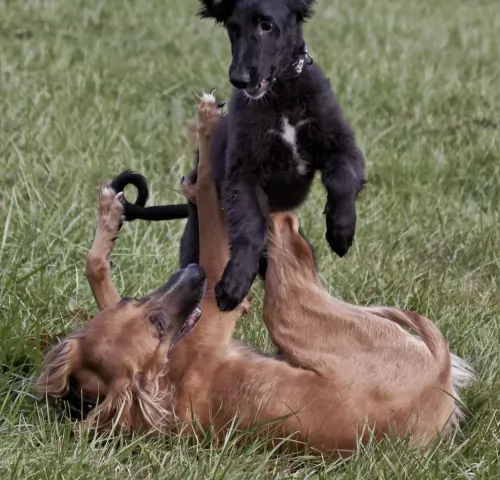 If you feed him one of the commercially manufactured dog foods, make sure its for a large, active dog breed and that it has a good list of ingredients. There are bad packaged dog foods and you want to avoid these. They are devoid of vitamins and minerals.
If you feed him one of the commercially manufactured dog foods, make sure its for a large, active dog breed and that it has a good list of ingredients. There are bad packaged dog foods and you want to avoid these. They are devoid of vitamins and minerals.
Read the packaging to see how much food to give. Also try and give your dog some home-made food too. Make sure it isn’t spicy, exotic foods. Stick to simple, wholesome foods such as boiled chicken, brown rice or pasta, sweet potatoes, spinach and carrots. Chop the food up and mix it into the dry kibble twice a week or so as a treat.
Also try and include some raw meat in occasionally.
Never leave your pet without a constant supply of fresh, cool water.
General Care:
Provide your pet with a dry, peaceful place to sleep.
Get him to the vet if he is showing signs of sickness.
Give him a good dose of exercise – walks, hikes, runs, ball games etc.
See that his vaccines are up to date.
Have him or her neutered or spayed to avoid unwanted puppies.
If you bring a dog into your family, provide it with love and attention.
1.Feeding the puppy Feed a high quality toy puppy food 3-4 meals per day a total of ¼ cup for the day.
2.Feeding the adult Feed a high quality toy puppy food 1-2 meals per day a total of ½ cup for the day.
3.Points for Good Health – No inherited issues.
4. Games and Exercises – These are high energy dogs as both parent breeds are such. They need to run, love having a fenced yard, 15-20 minute walks per day.
Comparison with other breeds
- Taigan vs English Bulldog - Breed Comparison
- Taigan vs German Shepherd - Breed Comparison
- Taigan vs Golden Retriever - Breed Comparison
- Taigan vs Labrador Retriever - Breed Comparison
- Taigan vs West Highland White Terrier - Breed Comparison
- Taigan vs French Bulldog - Breed Comparison
- Taigan vs Beagle - Breed Comparison
- Taigan vs Yorkshire Terrier - Breed Comparison
- Taigan vs Poodle - Breed Comparison
- Taigan vs Rottweiler - Breed Comparison
- Taigan vs Boxer - Breed Comparison
- Taigan vs English Pointer - Breed Comparison
- Taigan vs Siberian Husky - Breed Comparison
- Taigan vs Doberman Pinscher - Breed Comparison
- Taigan vs American Bully - Breed Comparison
- Taigan vs Abruzzenhund - Breed Comparison
- Taigan vs Affenpinscher - Breed Comparison
- Taigan vs Afghan Hound - Breed Comparison
- Taigan vs Aidi - Breed Comparison
- Taigan vs Airedale Terrier - Breed Comparison
- Taigan vs Akbash Dog - Breed Comparison
- Taigan vs Akita - Breed Comparison
- Taigan vs Africanis - Breed Comparison
- Taigan vs Askal - Breed Comparison
- Taigan vs Atlas Terrier - Breed Comparison
- Yorkillon vs English Bulldog - Breed Comparison
- Yorkillon vs German Shepherd - Breed Comparison
- Yorkillon vs Golden Retriever - Breed Comparison
- Yorkillon vs Labrador Retriever - Breed Comparison
- Yorkillon vs West Highland White Terrier - Breed Comparison
- Yorkillon vs French Bulldog - Breed Comparison
- Yorkillon vs Beagle - Breed Comparison
- Yorkillon vs Yorkshire Terrier - Breed Comparison
- Yorkillon vs Poodle - Breed Comparison
- Yorkillon vs Rottweiler - Breed Comparison
- Yorkillon vs Boxer - Breed Comparison
- Yorkillon vs English Pointer - Breed Comparison
- Yorkillon vs Siberian Husky - Breed Comparison
- Yorkillon vs Doberman Pinscher - Breed Comparison
- Yorkillon vs American Bully - Breed Comparison
- Yorkillon vs Abruzzenhund - Breed Comparison
- Yorkillon vs Affenpinscher - Breed Comparison
- Yorkillon vs Afghan Hound - Breed Comparison
- Yorkillon vs Aidi - Breed Comparison
- Yorkillon vs Airedale Terrier - Breed Comparison
- Yorkillon vs Akbash Dog - Breed Comparison
- Yorkillon vs Akita - Breed Comparison
- Yorkillon vs Africanis - Breed Comparison
- Yorkillon vs Askal - Breed Comparison
- Yorkillon vs Atlas Terrier - Breed Comparison
 Petzlover
Petzlover Taigan is originated from Kyrgyzstan but Yorkillon is originated from United States. Taigan may grow 59 cm / 24 inches higher than Yorkillon. Taigan may weigh 30 kg / 67 pounds more than Yorkillon. Both Taigan and Yorkillon has almost same life span. Both Taigan and Yorkillon has almost same litter size. Taigan requires Low Maintenance. But Yorkillon requires Moderate Maintenance
Taigan is originated from Kyrgyzstan but Yorkillon is originated from United States. Taigan may grow 59 cm / 24 inches higher than Yorkillon. Taigan may weigh 30 kg / 67 pounds more than Yorkillon. Both Taigan and Yorkillon has almost same life span. Both Taigan and Yorkillon has almost same litter size. Taigan requires Low Maintenance. But Yorkillon requires Moderate Maintenance Known also as the Kyrgyzdyn Taighany, the Taigan is a sighthound dog from Kyrgyzstan. Today the dog is recognized by a number of kennel clubs,and more recently by the FCI.
Known also as the Kyrgyzdyn Taighany, the Taigan is a sighthound dog from Kyrgyzstan. Today the dog is recognized by a number of kennel clubs,and more recently by the FCI. The Taigan is a large dog, looking much like a Grehound. He stands at between 55 and 82cm in height and weighs about 25 - 34kg.
The Taigan is a large dog, looking much like a Grehound. He stands at between 55 and 82cm in height and weighs about 25 - 34kg. Any dog, no matter how healthy they may appear to be, can encounter any one of the many common dog illnesses there are. It is highly unlikely that your Taigan will experience these health issues but it’s good to be aware of some of them -
Any dog, no matter how healthy they may appear to be, can encounter any one of the many common dog illnesses there are. It is highly unlikely that your Taigan will experience these health issues but it’s good to be aware of some of them - If you feed him one of the commercially manufactured dog foods, make sure its for a large, active dog breed and that it has a good list of ingredients. There are bad packaged dog foods and you want to avoid these. They are devoid of vitamins and minerals.
If you feed him one of the commercially manufactured dog foods, make sure its for a large, active dog breed and that it has a good list of ingredients. There are bad packaged dog foods and you want to avoid these. They are devoid of vitamins and minerals.